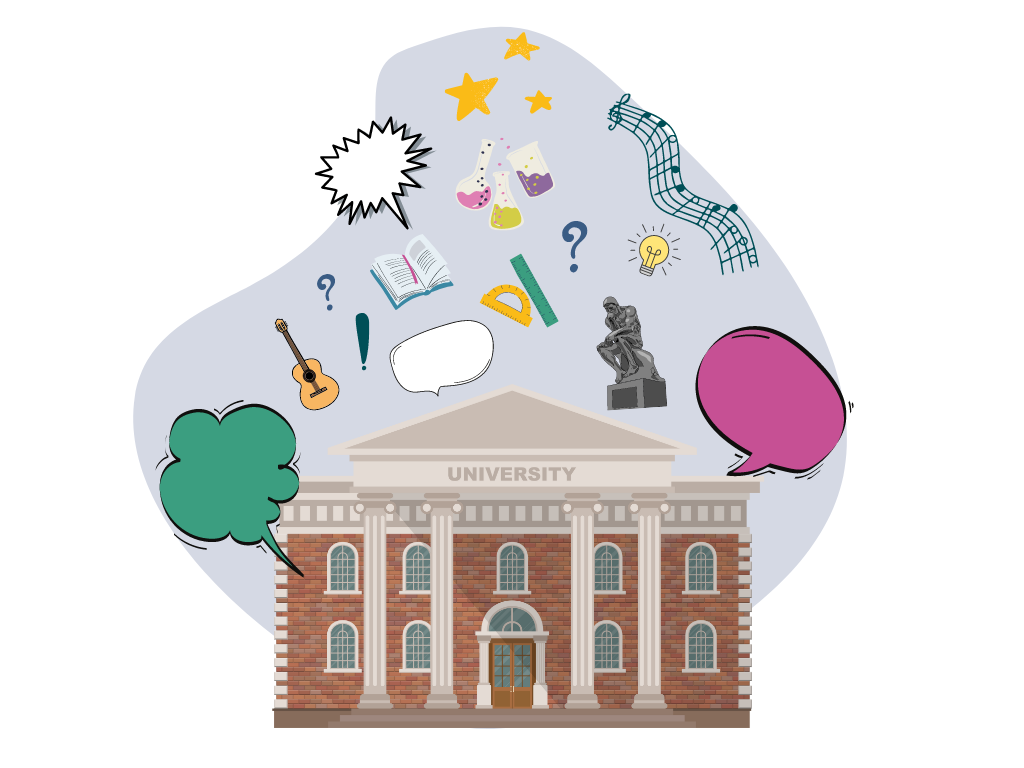4. How to use Europass with your clients
Educational institutions
 In addition to their home environment, educational institutions (primary, secondary and higher education) play a key role in supporting their pupils/ students in developing their career management skills and strengthening their informed career planning.
In addition to their home environment, educational institutions (primary, secondary and higher education) play a key role in supporting their pupils/ students in developing their career management skills and strengthening their informed career planning.
Institutions can contribute to the career readiness of pupils/ students and empower them to make a successful career choice, but it can also discourage them from planning their future career. Experiences in primary and secondary education strongly influence pupils'/ students' self-efficacy and work motivation. One of the efficient methods school staff can use to help their students develop a strong sense of efficacy includes continuous analysis of their individual characteristics, skills and abilities.
Individual characteristics, skills and abilities of pupils/ students can be compared and the so-called strengths of each pupil/ student can be identified - regardless of whether it is a student’s attitude towards work and meeting their school commitments, their general or specific knowledge, skills or interests. Pupils’/ students’ further development should be encouraged, individual progress should be rewarded, and students should be encouraged to think about how to use their own characteristics, skills and abilities in different areas of work.
What actions can educational institutions take to support the development of career management skills in pupils/ students?
- Making space for the development of the pupils’/ students’ career management skills in the school curriculum
In primary and secondary education, this is most often carried out as cross-curricular content included in all subjects, and can be combined with thematic extra-curricular workshops or activities, such as Erasmus+ school projects or mobilities which all students contribute to. It can also be supported through a special mandatory or elective subject related to the field of personal and civic education. - Building connections with the world of work
Schools can help their pupils/ students to experience the work environment and culture of a company first-hand with a field trip to a workplace. Conversely, representatives of various professions can also come to schools and organise classroom talks. Finally, in secondary schools, students can participate in different forms of work practices, apprenticeships, etc. to gain a more direct insight into the world of work. - Monitoring students’ development using student portfolios
Students can systematically collect different class materials and their own works related to their professional development, which helps them integrate the attitudes, knowledge, and skills they acquired in different subjects during their schooling. This kind of insight into their collected achievements and experiences supports students in setting realistic learning goals and achieving clarity in terms of their future career planning.
With the tools of the Europass portal, school counsellors and school staff can efficiently address the topics mentioned above, by helping students identify their skills (gained in formal, non-formal and informal school environment) and by covering the topics of job application and career orientation in class. In this way, they can teach pupils/ students to recognize their skills and experiences, and based on that, create their first job application and prepare them for the transition to working life. In addition, the Europass tools are suitable for preparing work placements abroad.
These Europass tools are suitable for use in the classroom:
- Europass profile: Europass profile offers students a secure online where they can keep track of their continuous professional development. As they participate in a new learning experience or develop a new skill, students can update their Europass profile accordingly. This will allow them to have continuous insight into their achievements and experiences developed through time, which will help them achieve clarity in terms of their future career planning.
- CV Editor: How is a CV structured? What goes into it? The Europass CV Editor is an uncomplicated way to create a meaningful CV, as it guides you step by step through the creation of a CV. The standardised template can be customised with different layouts as well as colours and fonts. This allows you to concentrate entirely on the content.
- Cover Letter Editor: The creation of suitable cover letters can also be worked on and practised using the Cover Letter Editor.
- Share Europass profile/ CV: Pupils who have already created a personal profile in the portal can easily share their draft CV with the teacher via a link in order to work out improvements together.
- Self-assessment tool for digital competences: This tool can be used to realistically assess personal competences. If the self-assessment is done e.g. at the beginning and end of a school year or before and after a stay abroad, learning progress can be reflected.
- Europass Certificate Supplement: What training occupations are there? What competences does one acquire through training and where can one work with this training? The Europass Certificate Supplements answer these questions. They provide brief descriptions of training occupations and can be used well in the context of career guidance.
- Europass Mobility: This document records skills and knowledge developed through learning stays abroad. In connection with work placements abroad during training, the Europass Mobility and opportunities offered by occupational mobility can be discussed.